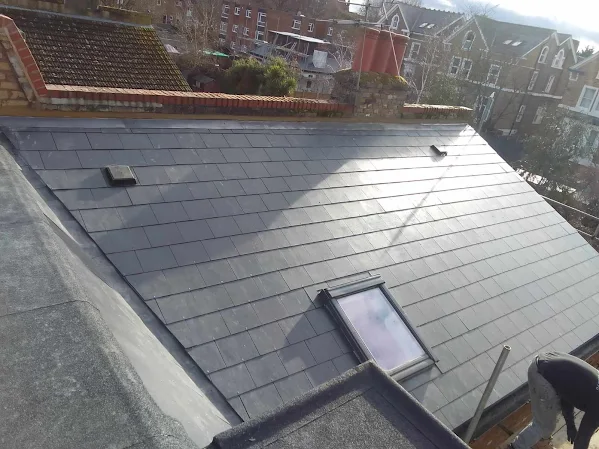+44 7853 968135
Is it expensive to repair a chimney?
Chimney repairs can range from modest maintenance costs to substantial structural investments, depending on the extent of damage and the specific issues affecting your property. The reality is that chimney repair expenses vary dramatically across the UK, with factors such as location, accessibility, and the age of your property playing crucial roles in determining final costs.
Understanding these cost variations helps homeowners make informed decisions about maintaining one of their property’s most important safety features. While some repairs might seem expensive initially, addressing chimney issues promptly often prevents far more costly structural problems developing over time.
How Much Does It Cost to Repair a Chimney in the UK?
Basic chimney repairs in the UK typically start from £150 for minor repointing work, whilst comprehensive rebuilds can exceed £5,000 depending on the scope required. Most homeowners find themselves facing repair bills between £500 and £2,000 for common issues such as flashing replacement, minor structural repairs, or chimney pot replacement.
Regional variations significantly impact pricing across the UK, with London and the South East commanding premium rates compared to northern regions. Labour costs alone can vary by up to 40% between different areas, making location one of the primary factors influencing your final repair bill.
The complexity of access also affects pricing considerably, as chimneys requiring scaffolding or specialist equipment naturally incur additional costs. Properties with particularly tall chimneys or those in conservation areas may face enhanced expenses due to planning requirements and specialist materials needed to maintain historical authenticity.
| Repair Type | Typical Cost Range | Duration |
|---|---|---|
| Minor repointing | £150 – £400 | 1-2 days |
| Flashing replacement | £300 – £800 | 2-3 days |
| Chimney pot replacement | £200 – £600 | 1 day |
| Structural repairs | £1,000 – £3,000 | 3-7 days |
| Full rebuild | £3,000 – £8,000 | 1-2 weeks |
Need some Support with your chimney Repairs? Speak with a member of our Professional Chimney Repairs Team here

Should You Remove or Repair Your Chimney?
Removal costs for chimneys generally range from £1,500 to £4,000, making this option financially attractive when facing extensive repair bills exceeding £3,000. However, removal isn’t always the most sensible choice, particularly for period properties where chimneys contribute significantly to architectural character and property value.
Repair typically proves more cost-effective for minor to moderate damage, especially when the chimney stack remains structurally sound. Modern repair techniques and materials can extend a chimney’s lifespan considerably, often providing decades of reliable service when properly maintained.
The decision ultimately depends on your property’s specific circumstances, including planning restrictions, conservation area requirements, and your long-term intentions for the building. Properties in conservation areas may face restrictions on chimney removal, whilst period properties often see reduced market appeal without their characteristic chimney features.
Understanding Chimney Insurance Coverage
Most standard home insurance policies exclude routine maintenance and wear-and-tear damage from chimney coverage, meaning homeowners bear responsibility for regular upkeep costs. However, sudden damage caused by storms, fires, or other insured perils typically receives coverage under building insurance policies.
The key distinction lies between gradual deterioration and sudden, unexpected damage events. Insurance companies generally cover chimney repairs resulting from storm damage, lightning strikes, or accidental impacts, but reject claims for pointing failure, general weathering, or maintenance-related issues.
Before assuming coverage, carefully review your policy documents and contact your insurer to clarify specific terms relating to chimney damage. Many policies require evidence that reasonable maintenance has been undertaken, making regular inspections and documented upkeep crucial for successful claims.
Understanding your coverage limitations helps budget appropriately for routine maintenance whilst ensuring you’re protected against major unexpected repair costs. The UK government’s guidance on home insurance provides valuable information about standard coverage expectations and claim procedures.
| Typically Covered | Usually Excluded |
|---|---|
| Storm damage | Wear and tear |
| Fire damage | Poor maintenance |
| Lightning strikes | Gradual deterioration |
| Accidental impact | Design defects |
| Sudden structural failure | Frost damage |
Professional Roofer Services for Chimneys
Qualified roofers possess the expertise and equipment necessary to handle most chimney repair work safely and effectively. Their training covers both roofing and chimney systems, making them well-positioned to identify and address issues that might affect your entire roof structure.
Specialist chimney engineers offer additional expertise for complex structural problems, historic building work, or situations requiring detailed knowledge of building regulations. These professionals often work alongside roofers to provide comprehensive solutions for challenging repair scenarios.
The choice between general roofers and specialists depends largely on your specific repair requirements and the complexity of work needed. Simple repairs like flashing replacement or minor repointing fall well within most qualified roofers’ capabilities, whilst major structural work might benefit from specialist intervention.
Always verify that any contractor holds appropriate insurance coverage and relevant certifications before commissioning work. The Trading Standards guidance provides valuable resources for checking contractor credentials and understanding your consumer rights during major home improvement projects.
Making Informed Decisions About Chimney Repair Costs
Chimney repair expenses reflect the complexity and importance of maintaining these crucial structural elements safely and effectively. While costs can seem substantial, particularly for major repairs, addressing issues promptly typically prevents far more expensive problems developing over time.
Professional assessment provides the foundation for making informed decisions about repair versus replacement options. Qualified contractors can evaluate your chimney’s condition comprehensively, identifying both immediate concerns and potential future maintenance requirements that might influence your decision-making process.
Budget planning becomes easier when you understand the typical cost ranges for different repair types and the factors that influence pricing in your area. Consider obtaining multiple quotes for significant work, ensuring each contractor provides detailed breakdowns of materials, labour, and any additional costs such as scaffolding or planning applications.
Key considerations for chimney repair decisions include:
Need Help with Chimney Repairs? Talk to one of our Professional Chimney Repairs Experts today!
Is it Expensive to Repair a Chimney: Frequently Asked Questions
Location proves the most significant factor, with London and South East properties typically facing costs 30-40% higher than northern regions. The extent of damage, accessibility requirements, and local labour rates combine to create substantial regional variations in pricing.
Regular maintenance and early intervention provide the most effective cost control strategies, preventing minor issues from developing into major structural problems. Obtaining multiple quotes and scheduling work during contractors’ quieter periods can also help reduce overall expenses.
Annual inspections provide optimal protection against developing problems, particularly for actively used chimneys where soot and debris accumulation occurs regularly. Unused chimneys benefit from biennial professional assessment to monitor structural condition and weather damage.
Repair costs for rental properties typically qualify as allowable expenses against rental income, reducing your taxable profit accordingly. However, improvements and major upgrades may need to be treated as capital expenditure with different tax implications.
Repairs restore existing functionality and typically receive insurance consideration for sudden damage, whilst improvements enhance beyond original specification and rarely qualify for coverage. This distinction significantly affects both tax treatment and insurance claim eligibility.
Trade associations like the Federation of Master Builders maintain directories of qualified professionals with appropriate insurance and training credentials. Local building control departments can also recommend approved contractors familiar with regional requirements and building standards.
Building regulations govern structural alterations and new installations, requiring building control approval for significant modifications or repairs affecting structural integrity. Minor maintenance work typically doesn’t require formal approval, though planning permission may be needed in conservation areas.
Quality repairs using appropriate materials generally provide 15-25 years of reliable service when properly maintained, though exposure conditions and usage patterns significantly influence longevity. Regular maintenance extends repair lifespan considerably compared to neglected chimneys.
Winter weather often increases repair urgency but may limit work scheduling, potentially affecting pricing due to reduced contractor availability. Summer scheduling typically offers more competitive pricing and better working conditions for comprehensive repair projects.
Stop work immediately and obtain professional assessment of the additional damage before proceeding, as this ensures proper repair planning and accurate cost estimation. Document the discovery thoroughly for potential insurance claims if the damage resulted from covered perils.
Contemporary materials often provide superior performance whilst maintaining visual compatibility with historic buildings, though conservation areas may require specific material approvals. Specialist suppliers offer modern products designed specifically for heritage building applications, combining performance with authenticity.
Visible structural movement, significant pointing deterioration, or internal water damage require immediate professional assessment to prevent safety hazards. According to Wikipedia’s detailed explanation of chimneys, structural integrity issues can develop rapidly without proper maintenance, making early intervention crucial for preventing extensive damage.
Look for contractors with relevant trade certifications, comprehensive insurance coverage, and membership in recognised trade associations such as the National Federation of Roofing Contractors. References from recent similar projects and knowledge of local building regulations indicate professional competence and reliability.

